Agriculture Funding & Job Opportunities 2025 South Africa: Exploring Funding, Precision AgriTech, and the Future of Farming
- Introduction: Focus on Agriculture Funding Opportunities & Job Trends in 2025
- Precision Agriculture: The Future of South African Farming
- Exploring Agriculture Funding Opportunities in South Africa (2025)
- 2025 Agriculture Funding Initiatives & Job Trends Table
- How Precision Agriculture Technologies Transform Job Opportunities
- Broader Opportunities in the Agriculture Sector
- How Farmonaut Empowers South African Agriculture
- Frequently Asked Questions
- Conclusion
“Over R2 billion in agriculture funding is projected for South Africa’s precision farming sector by 2025.”
Introduction: Focus on Agriculture Funding Opportunities & Job Trends in 2025
South Africa’s agriculture sector remains the cornerstone of the nation’s economy, underpinning food security, export revenue, and employment in both rural and urban areas. As we move into 2025 and beyond, the sector faces both ongoing challenges and unprecedented opportunities—especially as technology transforms traditional farming. Key among these innovations is precision agriculture (PA), which leverages GPS, IoT sensors, satellite monitoring, artificial intelligence, and smart farm equipment to optimize inputs, increase yield, reduce waste, and drive sustainability.
As governments, banks, and global institutions increasingly recognize these changes, we’re seeing a wealth of agriculture funding opportunities and job opportunities emerging in South Africa for 2025. Whether you’re a smallholder farmer looking for a grant, an agribusiness seeking new markets, or a graduate aiming to find a meaningful career, understanding these opportunities in the agriculture sector can position you for success in a rapidly evolving landscape.
What to Expect in This Guide
- A deep dive into agriculture funding opportunities in South Africa (2025)
- The precision agriculture funding opportunities 2025 likely to shape the sector’s future
- Key technology trends (satellites, IoT, analytics, drones, sensors) and their job creation impact
- A comparative table summarizing major funding programs, their focus, tech highlights, estimated jobs, and key eligibility
- Insights into Farmonaut’s role in supporting digital transformation in agriculture
- Practical tips, resource links, and FAQs for the South African agri-community
Precision Agriculture: The Future of South African Farming
To understand why precision agriculture funding opportunities 2025 are so crucial, it’s essential to grasp what PA is and why it is transforming the sector so profoundly.
What Is Precision Agriculture?
Precision agriculture refers to a suite of advanced technologies that collect, analyze, and apply data at farm level to optimize every aspect of production. Its main pillars include:
- GPS guidance and mapping: For planting, fertilizing, or harvesting with pinpoint accuracy.
- IoT sensors placed across fields: To monitor soil health, moisture, disease, and more.
- Satellite monitoring: Near real-time observation of crops, land use, and weather events.
- Drones: For aerial monitoring, spraying, and rapid crop health assessment.
- AI-based advisory systems and farm management software platforms.
With worsening water scarcity, erratic climate variability, and increasing pressure to improve sustainability, such solutions are not just “nice to have”—they’re vital for the future of South African farming.
The integration of PA tools allows farmers to:
- Optimize inputs (fertilizer, water, seed), reducing waste and cost
- Increase productivity and yield by identifying high-potential areas
- Improve soil health and long-term sustainability through data-driven management
- Reduce environmental impact and meet global sustainability standards
- Access new types of funding that would otherwise be unavailable
In short, precision agriculture is both a technological evolution and an economic revitalization tool for South Africa’s agri-community.
Key Precision Agriculture Technologies Driving Change
Among the most impactful technologies adopted in South African farming are:
- Satellite-based crop and soil monitoring for precision decision-making
- Drone-based aerial surveys to track vegetation health and stress
- Irrigation optimization through soil moisture sensors and real-time data feeds
- AI-driven forecasting for yields, weather, and pest management
- Digital farm management software to coordinate operations, logistics, and compliance
Find out more about solutions like Farmonaut’s platform in the dedicated section below, covering real-time satellite monitoring, fleet management, and blockchain traceability for South African agriculture.
Exploring Agriculture Funding Opportunities in South Africa (2025)
The surge in precision agriculture funding opportunities 2025 is driven by both local challenges and international commitments to climate-smart, sustainable development.
1. Government Grants, Subsidies, and Support
The South African government, through entities like the Department of Agriculture, Land Reform, and Rural Development (DALRRD), is committed to a modernized, equitable farming sector. In 2025, focus areas include:
- Grants and subsidies for purchasing precision agri-equipment (soil sensors, drones, satellite monitoring packages)
- Special incentive programs targeting emerging farmers and youth in agriculture
- Mechanization schemes for adopting advanced farm equipment and smart machinery
- Funds for digital farm management software and agricultural data platforms
- Grant initiatives supporting sustainable land management, including agroforestry and climate-resilient cropping
Eligibility for these opportunities is usually based on project scale, transformation alignment (e.g. black-empowered agri-enterprises), and adherence to climate-smart goals.
Tip:
- Many government funds and subsidies prioritize technology adoption and digital transformation in the agriculture sector. Applicants should highlight their use of sensors, monitoring platforms, and plans to increase sustainability and optimize inputs.
2. International and Multilateral Funding Initiatives
South Africa is the recipient of a growing number of international funding and partnership schemes, including:
- Global climate initiatives providing grants for precision agriculture funding opportunities 2025 and climate-smart agricultural projects
- Multilateral agencies (FAO, World Bank, African Development Bank) offering targeted finance for tech adoption and rural enterprise development
- Funds for climate adaptation (water management, drought-resistant crops, regenerative agriculture solutions)
- Support for integrating environmental monitoring and blockchain traceability into agri-chains
Key eligibility criteria: scaling climate-smart practices, leveraging digital platforms in farm management, and proving measurable sustainability impact.
3. Private Sector, AgriTech Startups, and Venture Capital
Private investment is unleashing a wave of innovation in South African agriculture, particularly in precision technology, with a focus on:
- Venture capital investment in IoT, AI, satellite platforms, and drones for improved soil monitoring and input optimization
- Private equity in digital farm management tools and logistics
- Support for blockchain traceability solutions, ensuring quality control and export readiness
- Accelerators and incubators focused on sustainable agri-value chains
Startups and agribusinesses leveraging digital monitoring, resource efficiency, and data-driven methods attract the majority of private funding in 2025.
4. Banks, AgriFinance, and Microcredit Institutions
Several banks, including leading South African players, are:
- Offering loan facilities and credit products for the purchase of new farming equipment and digital tools
- Embracing satellite-based verification (like that offered by Farmonaut) for loan and insurance approvals
- Providing flexible, data-driven repayment schemes
- Supporting emerging farmers and youth entrepreneurs via dedicated funds in the PA area
Eligibility is often linked to farm data, integration of digital technologies, and projected improvements in productivity and sustainability.
5. Agri Value Chain Projects and Export-Oriented Funding
New programs offer support for export-oriented value chains and agri-processing industries, unlocking agriculture job opportunities and addressing increasing global demand for South African crops.
- Focus on macadamia, citrus, avocados, berries, and sustainable packaging
- Support for linking smallholder farmers into export-grade value chains, often requiring digital traceability
“Precision agriculture could create 15% more skilled jobs in South Africa’s agri-sector by 2025.”
2025 Agriculture Funding Initiatives & Related Job Trends in South Africa
| Funding Source/Programme | Estimated Funding Amount (ZAR) | Main Focus Area | Technology Highlighted | Estimated Jobs Created (2025) | Key Eligibility Criteria |
|---|---|---|---|---|---|
| DALRRD Precision Agri Grant | R1.3 billion | Precision equipment acquisition, mechanization | Soil sensors, drones, digital farm management | 8,200+ | Target: emerging & commercial farmers; PA adoption; transformation/empowerment focus |
| Global Bank & FAO “Climate-Smart” Facility | R500 million | Climate resilience, smart farming | AI analytics, IoT sensors, satellite weather monitoring | 3,700+ | Adoption of digital tools; climate impact evidence; open to agribusinesses and coops |
| Private Venture AgriTech Fund (SA) | R300 million | AgriTech scaling and commercialization | Farm management platforms, AI-driven advisory, robotics | 2,900+ | Innovative tech startups; measurable productivity gains; partnerships with smallholders |
| AgriBank Loan Scheme (Emerging Farmers) | R550 million (facility) | Farm modernization; precision input upgrades | Satellite-based monitoring, digital tracing, sustainability dashboards | 2,500+ | Proof of concept; digital farm data; sustainability plan |
| Export Value Chain Booster (Various) | R180 million | Export crops, agro-processing infrastructure | Blockchain traceability, remote logistics | 1,600+ | Export market focus; traceability/quality standards; environmental compliance |
| Green Climate Fund Rural Tech Grant | R120 million | Sustainable land management, water efficiency | AI sensors, satellite imagery, cloud apps | 900+ | Rural coops; partnerships; environmental data reporting |
How Precision Agriculture Technologies Transform Job Opportunities
The shift to digitally enabled agriculture is creating new employment roles and evolving traditional farm jobs for 2025 and beyond.
Emerging Digital & Precision Agriculture Job Opportunities
-
AgriTech Specialists & Data Analysts:
As digital adoption increases, the demand for analysts skilled in farm data, yield analytics, and predictive modeling is surging. Their work directly enables farmers to optimize resources using precision inputs. -
Drone Operators & Maintenance Technicians:
The expansion of drone-based monitoring has created numerous technical roles, from piloting to maintenance. -
Farm Managers with Digital Expertise:
Farm operations now require managers fluent in integrating digital tools with on-the-ground work. -
Soil and Crop Scientists (Tech-Enabled):
Agronomists now use satellite data and soil analytics to make actionable recommendations for crop selection and management. -
Agricultural Extension Officers (Tech Advisors):
Extension officers trained in digital toolkits, remote advisory, and real-time monitoring facilitate the technology transfer process for emerging farmers. -
AI & Software Developers (Agricultural Applications):
The proliferation of new AgriTech platforms—including platforms such as Farmonaut—generates demand for coders and app developers specialized in agricultural data systems.
Opportunities in Traditional Roles (Enhanced by Technology)
- Tractor and Mechanization Operators: With increased mechanization, skilled machinery operators are more in-demand—especially those who can operate GPS- or telematics-equipped implements.
- Field Crop Workers (Upskilled): Human labor is increasingly paired with data-driven input application and remote field monitoring, improving productivity and working conditions.
- AgriLogistics and Supply Chain Managers: Export-oriented chains require trained managers to use blockchain traceability, environmental dashboards, and quality monitoring apps.
In sum, digital transformation does not remove jobs from the rural economy—it creates new skilled opportunities in agriculture sector, fosters digital upskilling, and stimulates related industries.
Broader Opportunities in the Agriculture Sector (2025+)
While precision agriculture funding opportunities 2025 and digital jobs are at the forefront, multiple opportunities in agriculture sector are being driven by new market and environmental imperatives across South Africa.
Sustainable Projects, Climate-Smart, and Export-Driven Initiatives
- Climate-smart projects: Innovative funding & support for drought-resistant crops, rainwater harvesting infrastructure, and regenerative agriculture practices that boost soil health while combating climate variability.
Learn how Farmonaut’s Carbon Footprinting solution helps monitor and offset environmental impact on your farm. - Agroforestry & Sustainable Land Use: Projects combining tree planting with cropping/animal farming for enhanced economic & ecological benefit. Green finance institutions are eager to support such projects.
Discover Farmonaut’s Plantation & Forest Advisory tools for tailored, satellite-driven management of complex, sustainable farm systems. - Export-Oriented Value Chains: High-value crops (nuts, avocados, citrus, organic produce) with global demand attract investment in quality control, sustainable packaging, and blockchain-based traceability.
Explore Farmonaut’s Traceability Product to secure export credibility with blockchain technology.
Expansion of agri-processing, packaging, and logistics creates new jobs in processing plants, cold chain logistics, and quality management—diversifying what it means to find a “career in South African agriculture” today.
? Explore Farmonaut’s API for satellite-based agriculture monitoring solutions.
? Read the API Developer Docs for integrating advanced agri-data into your systems.
How Farmonaut Empowers South African Agriculture
As a pioneering satellite technology company, Farmonaut is uniquely positioned to help farmers, agribusinesses, and institutions maximize the value of precision agriculture funding opportunities in South Africa.
Our Core Solutions for 2025 and Beyond
- Satellite-Based Monitoring:
We enable continuous crop and soil monitoring for yield optimization, health analytics, water management, and risk assessment—all accessible on Android, iOS, web, and API.
Explore large-scale farm management solutions with our Agro Admin App - AI-Driven Advisory Systems:
Our Jeevn AI tool delivers real-time, satellite-informed advice tailored to your unique farming, mining, or infrastructure projects. - Blockchain-Based Traceability:
Build trust and secure export markets with Farmonaut’s blockchain solution for supply chain traceability. - Fleet & Resource Management:
Optimize machinery and logistics for commercial farms and agriChains. Helps in cost reduction, asset safety, and environmental compliance.
See how our Fleet Management tools enhance agri-logistics - Environmental Impact Tracking:
We support farms and businesses with carbon footprint and resource consumption analytics to empower smarter, more compliant operations. - Financial Access:
By providing satellite-based verification for crop loan and insurance processes, we boost access to finance for South African farmers and minimize risk for lenders.
Read more about our Crop Loan and Insurance Verification services
Subscription Tiers for Every Need
Farmonaut offers flexible, subscription-based access—whether you’re a family smallholder, commercial agribusiness, or government department. Choose what suits your farm or enterprise for 2025 and beyond.
Frequently Asked Questions
-
What are the major agriculture funding opportunities in South Africa for 2025?
Answer: The major funding opportunities include government grants like the DALRRD Precision Agri Grant, climate-smart funding from global institutions (such as FAO and the World Bank), private venture capital for AgriTech startups, and targeted loans for emerging farmers. New schemes often emphasize the adoption of digital and precision agriculture technologies. -
How do I qualify for precision agriculture grants or subsidies in South Africa?
Answer: Requirements typically include: outlining a technology adoption plan (e.g., sensors, satellite platforms), focus on sustainability or transformation (e.g., black youth, female farmers), and demonstration of measurable economic or environmental benefit. -
What jobs will be most in-demand in the agri-sector in 2025?
Answer: Precision agri creates demand for drone operators, data analysts, digital farm managers, AI/software developers (agri-use), blockchain traceability professionals, and tech-enabled extension officers, alongside traditional roles upgraded by digital skills. -
Does satellite technology help access agriculture funding or loans?
Answer: Yes. Platforms like Farmonaut provide satellite-based farm verification, environmental impact tracking, and digital farm data—making it easier for institutions to approve funding with reduced risk of fraud or misreporting. -
How can smallholder farmers benefit from precision agriculture funding opportunities 2025?
Answer: Many new grant and loan programs specifically prioritize smallholders adopting precision tools. Affordable, modular tech like Farmonaut lets small farmers access satellite monitoring, soil diagnostics, and digital advisory without high setup costs. -
Which precision agriculture technologies are most relevant for South African conditions?
Answer: For the local environment, key tech includes: satellite crop/soil health monitoring, environmental impact tracking, IoT moisture sensors, drone aerial surveys, weather data integration, and blockchain-based traceability for export chains. -
Is there support for training and upskilling in digital agriculture roles?
Answer: Yes. Many government, private, and NGO projects integrate digital skills training, targeting youth, women, and rural communities for inclusion in the new digital agri-economy. -
How do I start using Farmonaut solutions?
Answer: Simply download our app for Android or iOS, or access the web version. You can also integrate Farmonaut’s API directly into your business solution.
Conclusion: Why Precision-Focused Funding & AgriTech Careers Matter for South Africa’s Future
As South Africa’s agriculture sector continues to adapt to climate challenges, economic pressures, and global competition, the future of farming is digital, sustainable, and inclusive.
Precision agriculture funding opportunities 2025, government and private investment, and new partnerships are driving a technological transformation that brings tangible benefits: improved yields, better resource management, environmental stewardship, and expanded job potential.
For farmers, the adoption of precision tools enables efficient, evidence-based management of farms, improved product traceability, and vital access to financing and insurance. For graduates and young professionals, jobs in digital, technical, and sustainability-focused agri-roles offer meaningful, future-proof career pathways.
As we at Farmonaut continue to democratize satellite-driven data for South African agriculture, our vision is that every farm—big or small—has the digital insights needed to thrive in the changing global economy. The opportunities in the agriculture sector today are greater, more varied, and more impactful than ever before.
2025 is a turning point: Leverage funding, embrace digital tools, and join the new generation driving South African agriculture forward.
Start your precision agriculture journey now with Farmonaut – empower your farm with satellite-powered insights for a sustainable and profitable 2025!





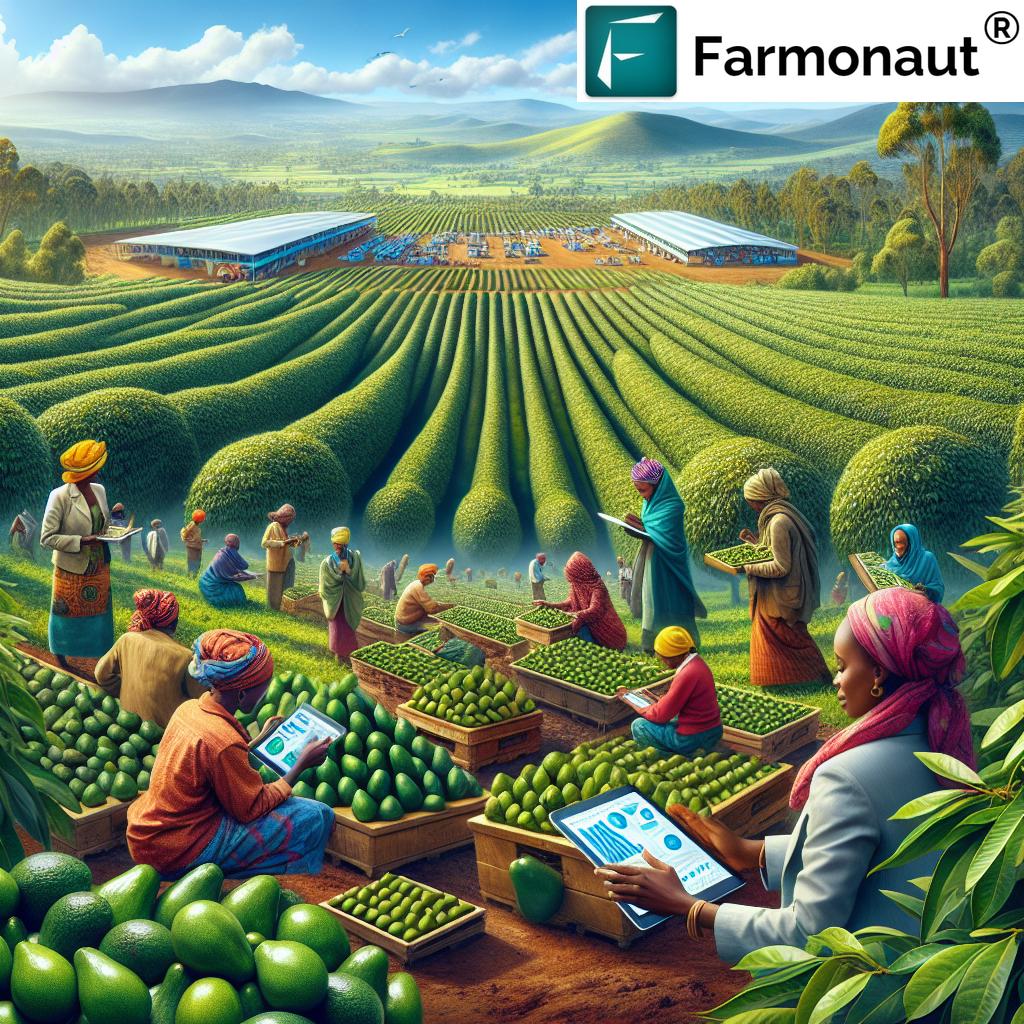


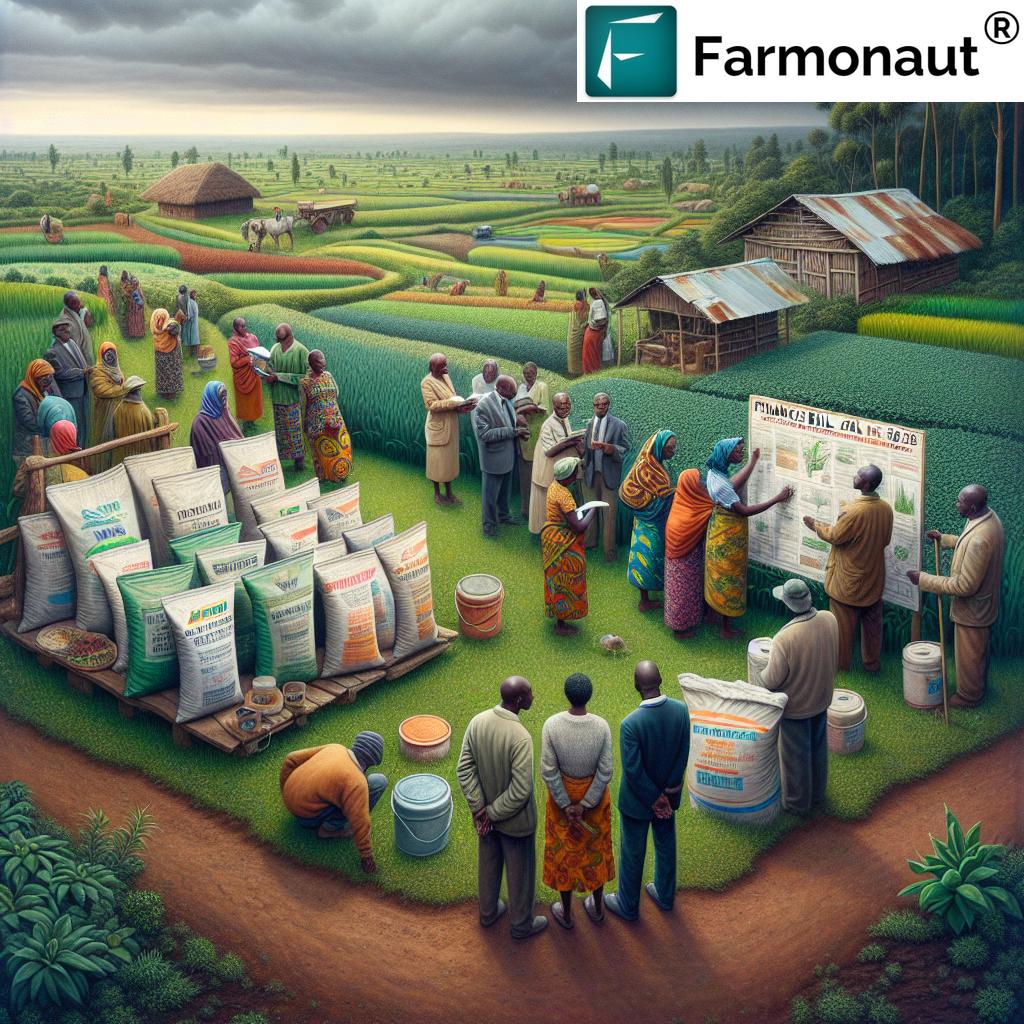
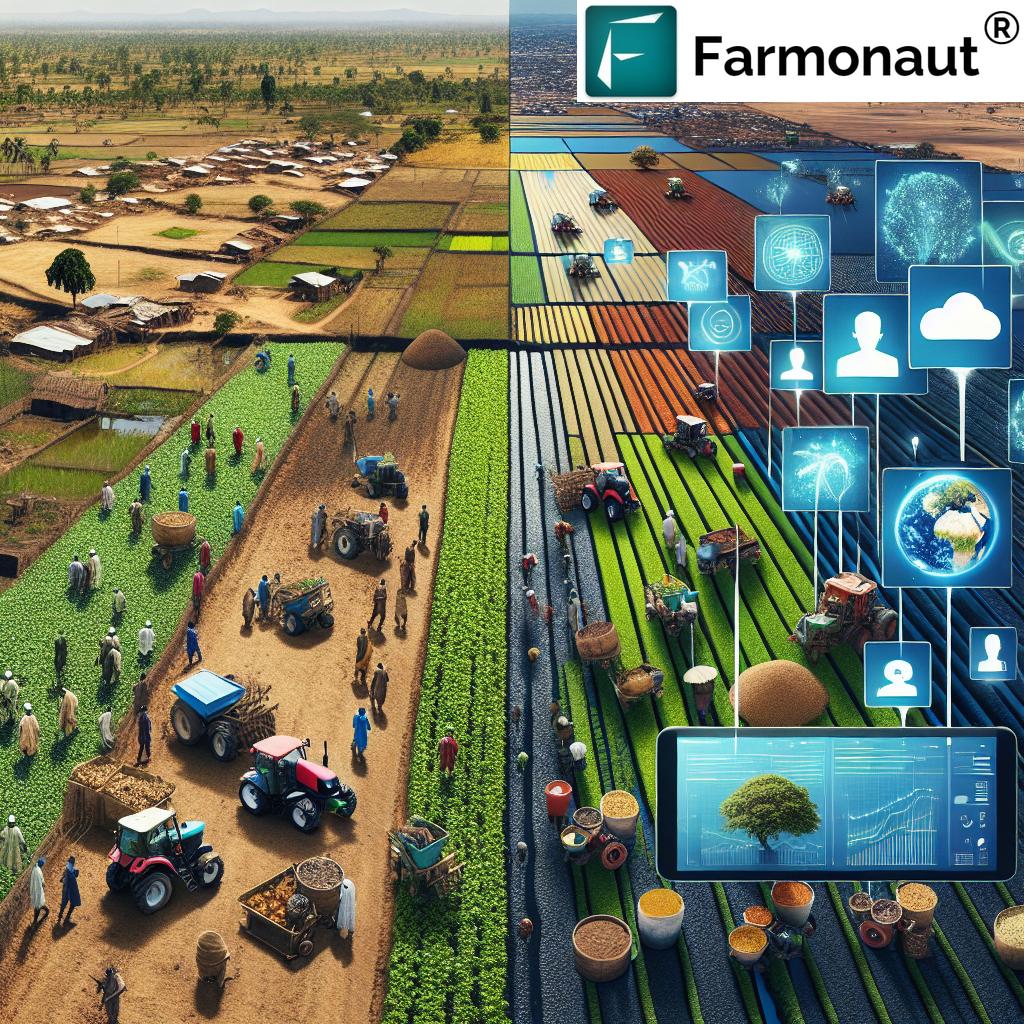
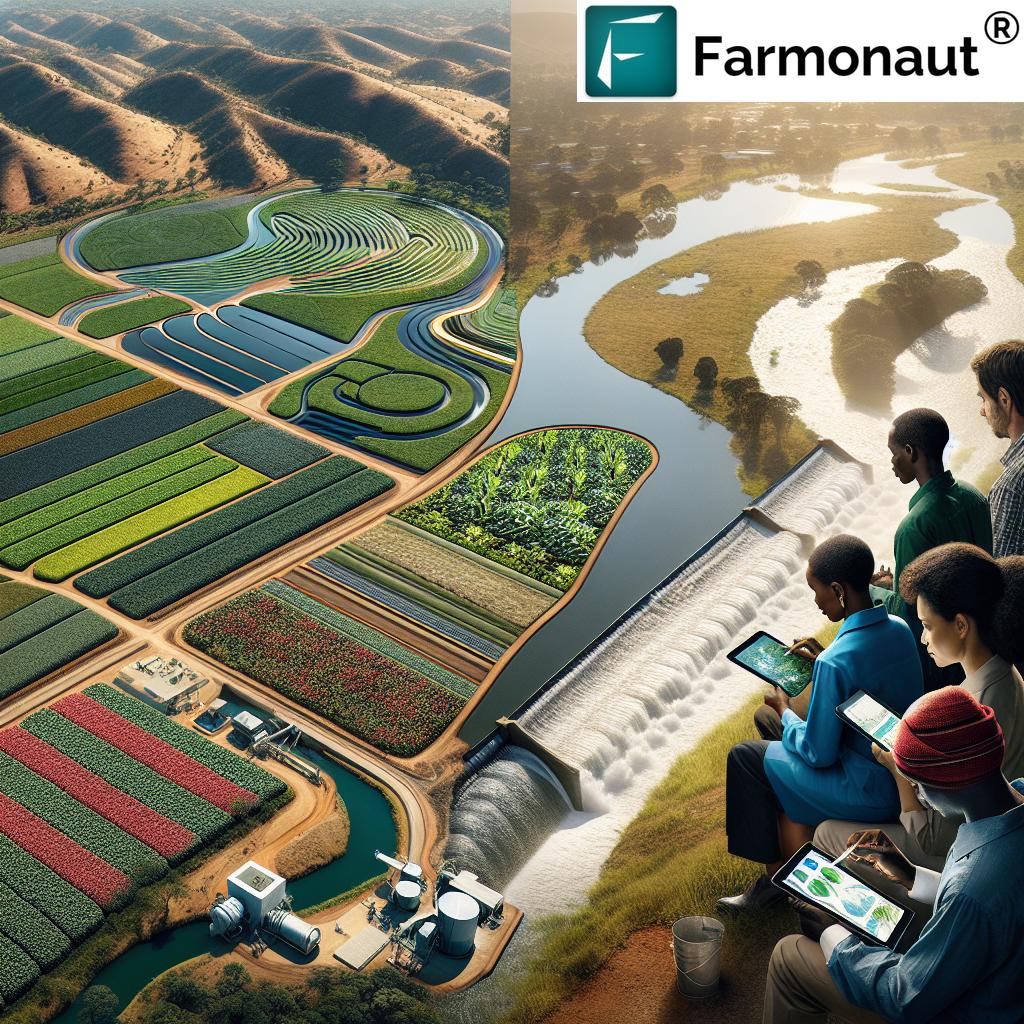



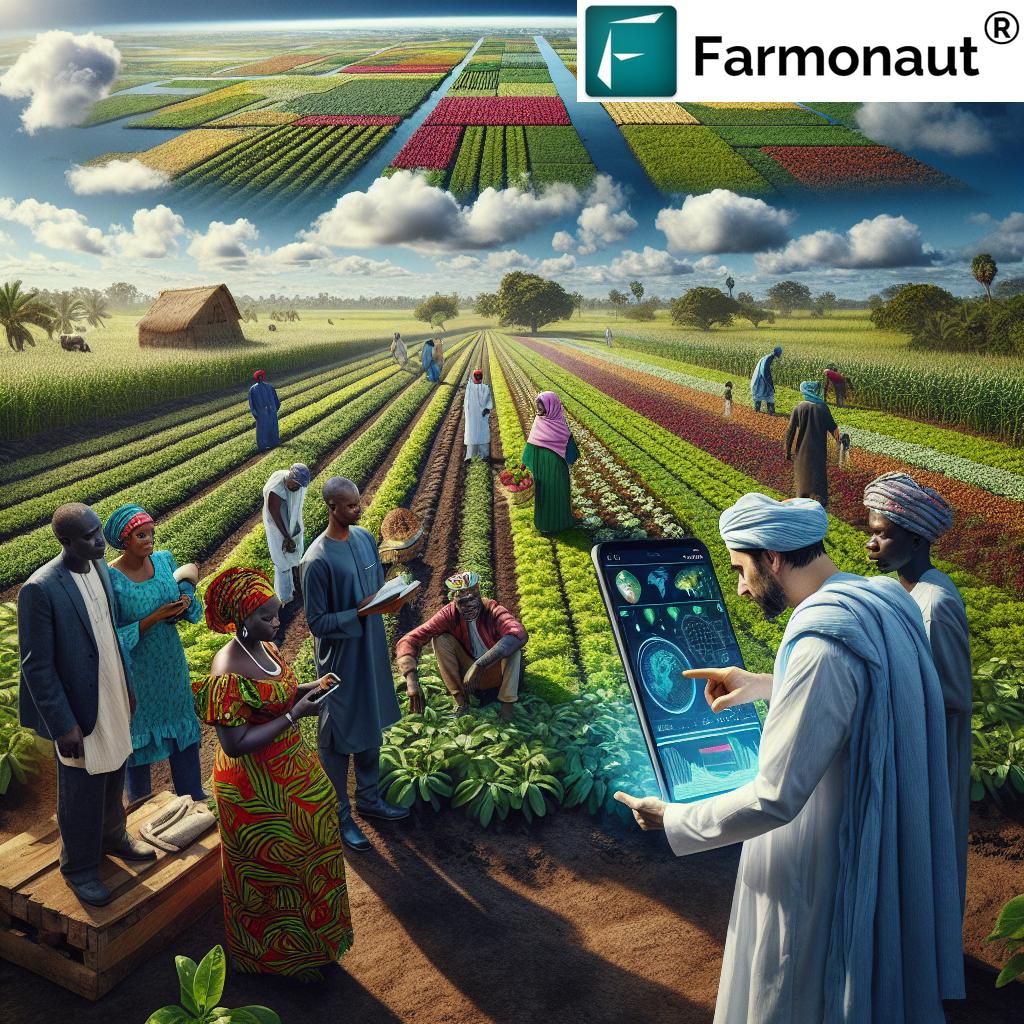
What roles does the agriculture sector play in both rural and urban areas of South Africa?